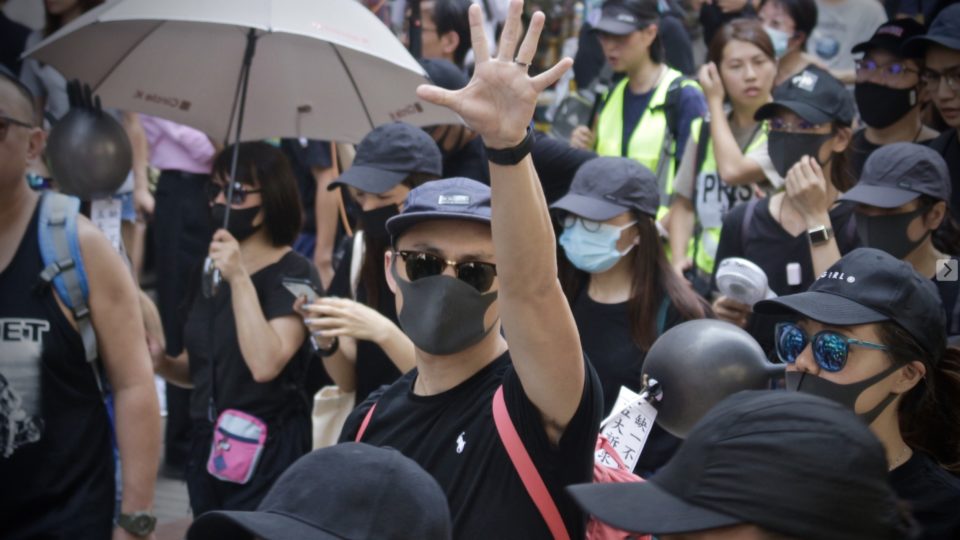Authorities are expected to implement a ban on face masks under Hong Kong’s draconian emergency powers law in an apparent bid to clamp down on ongoing anti-government protests, according to local media reports.
According to an exclusive report by HK01, authorities are currently in the final stages of enacting the ban through the Emergency Regulations Ordinance (ERO), a colonial-era law that grants the city’s leader and government sweeping powers in the event of public emergencies to “make any regulations whatsoever” — everything from censoring media outlets, to pressing citizens into forced labor, to locking down the city’s ports.
This afternoon, TV station TVB eported that authorities are expected to announce the mask ban on Friday following an executive council meeting.
In Hong Kong, face masks, in particular surgical masks, became more common following the 2003 SARS outbreak. But since the 2014 Umbrella Movement protests, they have also become popular among demonstrators, who use them to hide their identities.
Calls for a face mask ban go back as far as 2016, and in recent months some members of the pro-Beijing camp have again asked authorities to implement an anti-mask law as the city’s current protest movement escalated.
The news has prompted netizens on LIHKG to re-share a segment from a live debate between candidates for the 2016 New Territories East by-election, which was contested by the now-imprisoned localist activist Edward Leung. In the debate, Leung rebutted pro-Beijing candidate Holden Chow’s calls for an anti-mask law, saying that was what sparked the Ukrainian revolution in 2014.
Circulating in @lihkg_forum for a week – Edward Leung warns Holden Chow in 2016 election forum for "Anti-mask law triggered revolution in Ukraine. Do it, and we will see how #hongkonger finish your clan" #antiELAB #ExtraditionLaw #HongKongProtests https://t.co/QZ61WqXZMt pic.twitter.com/4ngku4qGjP
— Galileo Cheng (@galileocheng) October 3, 2019
The last time the ERO was invoked was during the 1967 Leftist Riots, which began as a result of trade union disputes and saw months of clashes between the colonial police and pro-Communist sympathizers. The riots are considered a watershed moment in the city’s history, and saw dozens of people killed, some in a citywide a bombing campaign.




